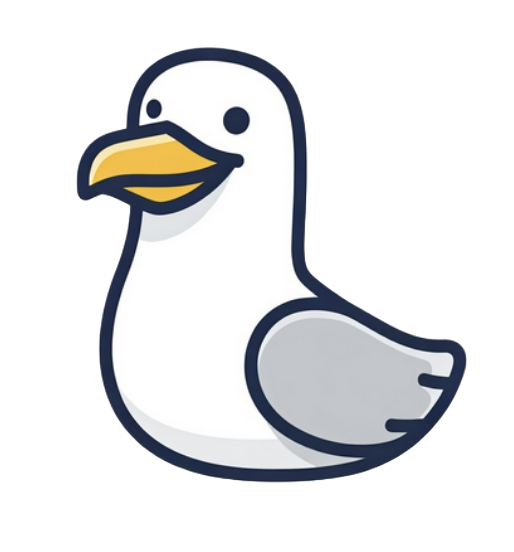DSL Specification
Datagen is a declarative DSL (domain specific language) that allows the user to encode the schema of the entity they wish to generate. It is composed of separate sections, that allow the user to specify different aspects of the schema, which are detailed in this document. The datagen compiler ingests this datagen code (in .dg files) and transpiles it into go code.
Salient features:
- Declarative model definitions
- Custom generator functions
- Metadata-driven configuration
- Cross-model references
- Integration with Go’s type system
Lexical Elements
Section titled “Lexical Elements”Keywords
Section titled “Keywords”The following are reserved keywords in the Datagen DSL:
model- Declares a data modelfields- Defines field specificationsgens- Defines generator functionscalls- Defines function calls for field initializationmisc- Injects arbitrary Go codefunc- Declares a functionmetadata- Defines model metadatacount- Specifies default record counttags- Defines model tags
Unless otherwise specified, the definitions of identifiers, literals, punctuators are is the same as in the Go spec
Syntax
Section titled “Syntax”Grammar Overview
Section titled “Grammar Overview”The Datagen DSL follows this top-level grammar:
%start mainmain: "model" identifier "{" main_body "}"main_body: fields_section | misc_section | metadata_section | calls_section | gen_fns_sectionA model declaration is the top level structure for encoding the schema. It consists of a model name followed by a block containing various sections.
Each .dg file contains a single model declaration, with the file name matching the model name.
Syntax
Section titled “Syntax”main: "model" identifier "{" main_body "}"Example
Section titled “Example”model user_profile {}Here, we define an entity called user_profile which has no fields (not a very useful entity).
metadata
Section titled “metadata”The metadata section provides configuration information for the model, including default record counts and tags for filtering.
count is an integer, and tags is a set of string key-value pairs.
Syntax
Section titled “Syntax”metadata_section: "metadata" "{" metadata_body "}"metadata_body: count_entry metadata_body | tags_entry metadata_body | // emptycount_entry: "count" ":" COUNT_INTtags_entry: "tags" ":" "{" tags_body "}"tags_body: "<key>" ":" <value> "," tags_body | // emptyExample
Section titled “Example”metadata { count: 100 tags: { "service": "user", "team": "backend" }}fields
Section titled “fields”The fields section declares the individual elements that make up the schema, and their corresponding types.
Syntax
Section titled “Syntax”fields_section: "fields" "{" fields_body "}"fields_body: field_declaration fields_body | // empty
field_declaration: Identifier "(" [GoType]")" GoTypeExample
Section titled “Example”fields { id() int name() string email() string is_active() bool rating() float32 created_at() time.Time metadata() map[string]string}Supported Types
Section titled “Supported Types”The Datagen DSL supports all valid Go types, including:
- Primitive types:
int,int8,int16,int32,int64,uint,uint8,uint16,uint32,uint64,string,bool,float32,float64,complex64,complex128 - Built-in types:
time.Time,time.Duration - Composite types:
map,slice,array,struct,interface{} - Pointer types:
*Type - Custom types: Any Go type defined in the
miscsection or imported from other Go packages
The generator functions section is composed of a series of generator functions. Each generator function corresponds to a field and returns a value of the appropriate type as required for that field.
Syntax
Section titled “Syntax”gen_fns_section: "gens" "{" gen_fns "}"gen_fns: "func" FuncNameLiteral "(" [parameter_list] ")" "{" <GoCode> "}" gen_fns | //emptyparameter_list = parameter { "," parameter }parameter = Identifier TypeExample
Section titled “Example”gens { func age() { return 42 }
func set_name() { return "user_data" }
func address() { d := &SampleAddress{ City: Sentence(10), Zip: Sentence(10), Desc: Sentence(10), } return ToJSON(d) }}The calls section provides initialization arguments to the generator functions. These need to be specified only for those field generator functions that accept parameters.
Syntax
Section titled “Syntax”calls_section = "calls" "{" call_list "}"
call_list = call call_list
call = field_name "(" [argument_list] ")"field_name = Identifierargument_list = <GoExpression> { "," <GoExpression> }Example
Section titled “Example”calls { user_id(IntBetween(1000, 2000), IntBetween(1, 10)) created_at("2023-01-01 00:00:00", "2023-12-31 23:59:59")}The misc section allows injection of arbitrary Go code into the generated package. This is useful for defining custom types, constants, and helper functions.
Syntax
Section titled “Syntax”MiscSection = "misc" "{" <GoCode> "}"Example
Section titled “Example”misc { type Currency string
const ( INR Currency = "INR" USD Currency = "USD" EUR Currency = "EUR" )
func RandomCurrency() string { return RandomFrom(string(INR), string(USD), string(EUR)) }}See Also
Section titled “See Also”- Data Model - Understanding datagen’s data model concepts
- Built-in Functions - Reference for all built-in generator functions
- Examples - Practical examples of DSL usage
